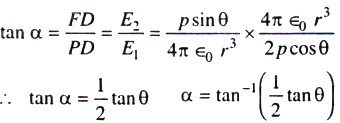Electric potential at any point due to an elecric dipole :
Consider P to the point of observation at a distance r from the centre O of the electric dipole AB.
Let OP makes an angle θ with the dipole moment vector p and r1, r2, be the distances of point P from q charge and + q charge respectively.
Potential at P due to - q charge,

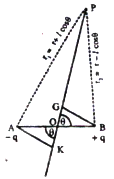
Potential at P due to +q charge,

∴ Potential at P due to the dipole.
V1 + V2 (principle of super position)
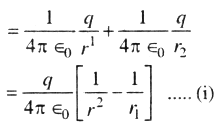
Now draw a ⊥ from A which meets the line at OP at C when produced backward. AIso draw BD ⊥ on OP.
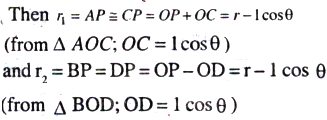
Substituting the values of r1 and 12 n eq (i), we get
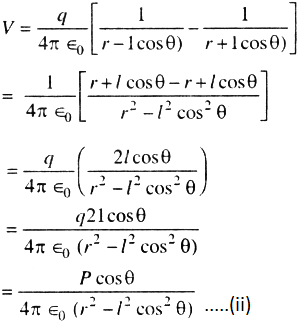
(dipole moment P = q.2I)
If r > > 1, then eq. (ii) becomes,

Since P cosθ = bar pr. where r is unit vector directed along OP.

Electric field intensity at any point due to a short electric dipole :-
Consider a short electric diplole AB having dipole vector P.
Let P be the point at a distane r from the centre O of the dipole. Let the line OP makes and angle θ with the direction of dipole moment vector p
Resolve vector p into two components :
(i) P cosθ along OP and
(ii) p sinθ ⊥ OP.
Point P is on the axial line w.r.t. p cosθ. So electric field intansity at P due short dipole is given by

P is one equitorial line w.r.t p sinθ. So electric field intansity at P due to short dipole is given by

Since E1and E2are ⊥ to each other, so the resulant electric field intensity at P is given by
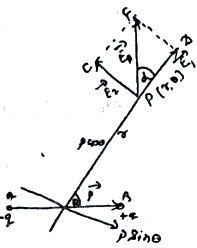
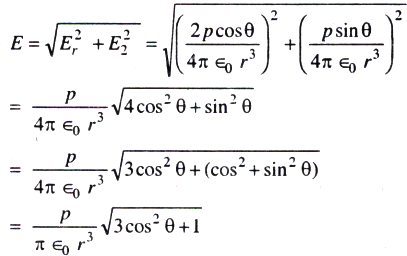
Direction of E is given by
